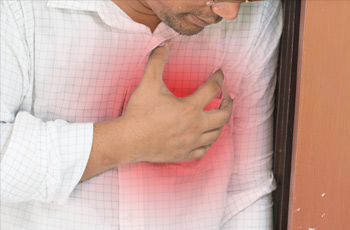
Michigan winters are beautiful, but can also pose danger—especially for older individuals or those at higher risk for cardiovascular disease. The combination of colder temperatures and physical exertion can place an increased workload on the heart.
Remember, if you notice any of the following symptoms—in yourself or someone you love—do not shrug them off as simply paranoia or indigestion. Call 911 right away.
- Chest discomfort that lasts more than a few minutes. Could be described as vague feelings of tightness, squeezing, heavy weight, dull ache, pressure or pain.
- Pain or discomfort that spreads to the shoulders/arms, back, neck, teeth, jaw, or ab-dominal area (could feel like heartburn).
- Difficulty breathing.
- Nausea and/or vomiting.
- Lightheadedness.
- Weakness and fatigue
- Anxiety (feeling of doom or that you’re having a panic attack for no apparent reason).
- Breaking into a sudden sweat with cold, clammy skin.
Acting Fast Saves Lives
Acting fast in response to a heart attack can make a lifesaving difference.
- Do not drive or drive someone else to the hospital. Don’t waste time trying to call the patient’s primary care doctor. The best thing you can do is call 911 immediately.
- Make the person more comfortable by loosening any tight or constricting clothing.
- If available, have the individual take an aspirin (325-milligram uncoated tablet).
- Stay calm and reassure him/her that help is on the way.
Learn CPR and how to operate an AED (automated external defibrillator). Holland Hospital's Healthy Life Programs offers ongoing CPR classes (keyword CPR) and related education.
Understanding Your Risks
Knowing your risks for heart attack is also powerful medicine, as it’s the first step toward leading a healthier life. Major risks for heart attack include:
- Age: Men 45 or older and women 55 or older are more likely to suffer a heart attack.
- Family history: particularly if your siblings, parents or grandparents had a heart attack or stroke earlier in life.
- High blood pressure and/or high cholesterol. Check in with your doctor to understand your numbers and what to do if they’re not within healthy ranges.
- Having diabetes, especially if it’s uncontrolled. Again, your health care provider should be helping you manage your condition for lifelong health.
- Obesity. The good new is, losing just 10 percent of your body weight can lower your risk of heart attack and several other chronic health conditions.
- Tobacco use. Smoking and long-term exposure to secondhand smoke increase the risk of heart attack.
So what’s the best way to take care of your one and only heart? While every person is different and there’s no magic solution, these five things can significantly lower your chances of developing cardiovascular disease or having a heart attack: eating healthy, exercising regularly, knowing cholesterol, blood pressure and body mass index (BMI) numbers, quitting smoking, and understanding your family history.